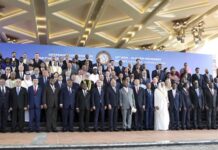One month ahead of the U.N. Climate Change Conference, COP26, new testimony from Mali has laid bare how climate risks threaten communities in conflict zones, ICRC said in a press release.
The International Committee of the Red Cross (ICRC) is warning that the climate crisis is making an already dire situation much worse, with people struggling to adapt and recover from repeated climate shocks.
Patrick Youssef, ICRC’s regional director for Africa, said that the world’s most vulnerable people – often those living through conflict – are the least able to overcome the impact the changing climate causes.
“Climate change hits the poorest and most vulnerable in the world. Farmers and other communities are unfortunately unable to cope with climate change. At COP26 we call on world leaders to take concrete action, concrete engagement, to bring climate action closest to those suffering in silence,” Mr Youssef said.
The situation in Mali shows how those in need are struggling. Lake Faguibine sits in northern Mali, 80 kilometres from Timbuktu. In the 1970s, following increasingly disastrous periods of drought, the lake began to evaporate.
Gradually, sand dunes replaced the vast expanses of water and farming land irrigated by flooding from the River Niger. Today, the region’s inhabitants have to make do with a rainy season of just three months, from July to September. For the rest of the year, temperatures approach 50°C. *
For the six lakeside municipalities, the consequences have been catastrophic. Fishing is a thing of the past, and there has been a huge drop in agriculture and livestock activities. Sand is devouring homes in the villages of Bilal Bancor, Bintagoungou and Mbouna.
Usable land is becoming scarce, provoking regular disputes between farmers and livestock herders. Mahamadou Ousmane is a farmer: “Not a day goes by without conflict between livestock herders and farmers. There’s not much space, and everyone wants a bit of what there is. So there’s tension.”





